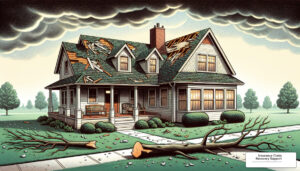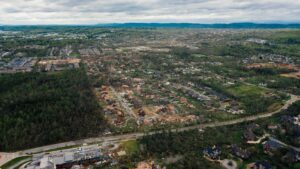We settle large-loss Tornado damage insurance claims
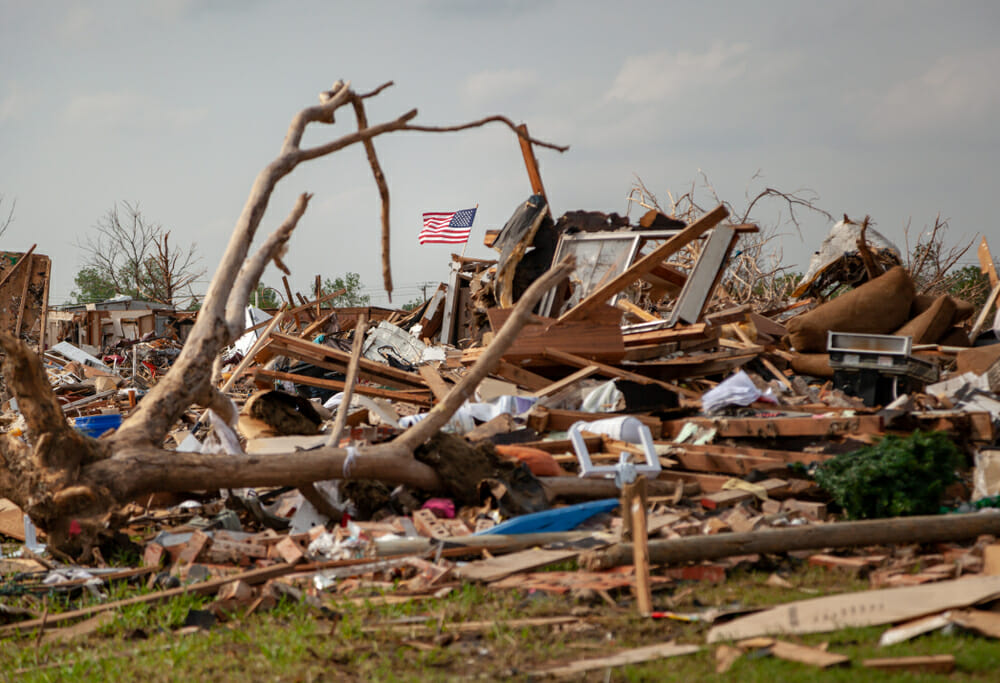
TORNADO LOSS
Trust ICRS public adjusters to settle your tornado property damage insurance claim
When a tornado has devastated your property, hiring ICRS public adjusters to help you settle your tornado insurance claim can help you get the maximum settlement you deserve in minimum time.
- Commercial Property Tornado Claims
- Multi-Family Property Tornado Claims
- High-Value Homes & Real Estate Tornado Claims
Public Adjuster for Tornado Claims
Tornado Damage Insurance Claim Public Adjusters settle large losses for Policyholders
Handling Texas, Florida, and Oklahoma Tornado Damage Insurance Claims
Business owners dealing with tornado damage insurance claims trust Insurance Claim Recovery Support’s public adjusters to get the fair and prompt settlement you deserve.
Partial loss wind damage insurance claims are commonly subject to repair vs. replacement disputes. Policy interpretation, law and ordinance, business interruption, code requirements, and your compliance as a policyholder to perform your duties per policy are points that can make a big difference in receiving a fair and prompt settlement.
Tornado damage to commercial property is often evident by the extent of the damage, which isn’t always visible to an untrained eye. Broken window seals, foundation movement, or a compromised roof require expertise and a team representing your interests.
We help policyholders manage liability inherent in the insurance claim process. Meeting your policyholder requirements in the event of a loss needs to be timely and reasonable. ICRS public adjusters work with you as a team to prepare a full scope of reasonable and necessary property damages on your behalf, a detailed estimate of projected costs, documentation of damages, explanation and interpretation of benefits covered as well as exclusions or limitations under your policy, a projected restoration period, assistance with 3rd party vendor relationships such as material testing resources, party engineers, and other specialists if required in order to negotiate and effectuate the fair and prompt settlement. Wind claims are complex.
The settlement process can be adversarial. We’ve been exclusively representing policyholders advocating and settling claims fairly without unnecessary litigation for over a decade.
- Check out Tornado Insurance Claim tips for Homes, Commercial and Multifamily Properties.
- See why policyholders love us by scheduling a complimentary claim review, you’ll be glad you did!
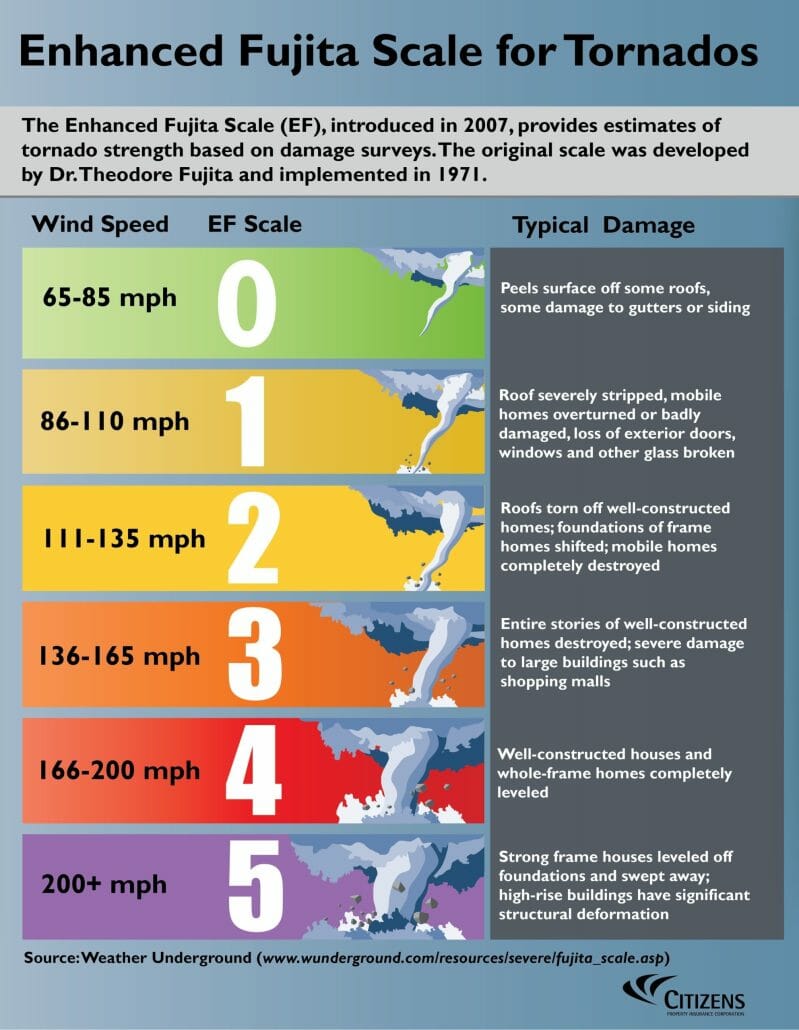
WHAT HAPPENS DURING A TORNADO
- When a building is pressurized, the internal pressure pushes up on the roof. This push from below the roof is combined with the suction above the roof, resulting in an increased wind load on the roof.
- The internal pressure also pushes on the side and rear walls. This outward push is combined with the suction on the exterior side of these walls.
- Building height – Wind speed increases with height above the ground. Therefore, the taller the building, the greater the speed and, hence, the greater the wind loads. Windows with broken seals often develop as latent damage so it’s important to check weeks and months after a tornado occurrence.
- Additionally, when wind interacts with a building, both positive and negative (i.e., suction) pressures occur simultaneously. Internal pressure changes occur because of the porosity of the building envelope.
- Porosity is caused by openings around doors and window frames, and by air infiltration through walls that are not absolutely airtight. A door or window left in the open position also contributes to porosity. Wind striking an exterior wall exerts a positive pressure on the wall, which forces air through openings and into the interior of the building (this is analogous to blowing up a balloon). At the same time the windward wall is receiving positive pressure, the side and rear walls are receiving negative (suction) pressure; therefore, air within the building is being pulled out at openings in these other walls. As a result, if the porosity of the windward wall is greater than the combined porosity of the side and rear walls, the interior of the building is pressurized. But if the porosity of the windward wall is less than the combined porosity of the side and rear walls, the interior of the building is depressurized (this is analogous to letting air out of a balloon.
If you are dealing with an underpaid, delayed, or denied property damage insurance, we can help.
TORNADO DAMAGE INSURANCE CLAIM TIPS
Tips to help your tornado insurance settlement goes smoothly, after your claim has been filed.
1. Make sure your insurance company pays you first, not a roofing company or contractor. Never sign over your insurance settlement check to a contractor.
2. Ask for an “advance payment” from the insurance company so you can mitigate, make temporary repairs and have money for additional living expenses.
3. Understand the scope of work and costs associated in your estimate of damages that the insurance company’s adjuster provides you. If they have not given you a copy, request one in writing!
4. When reviewing the repair estimate, look for the “10 & 10” on the totals page of the estimate. This refers to the standard 10% for overhead and 10% for contractor’s profit that is written into many policies and sometimes paid as part of the claim. Overhead and Profit (O&P) is a frequently disputed item. If the only portion of damage is your roof, be aware that your insurer may take the position you are not going to use a general contractor and refuse to pay the 10 and 10 profit and overhead. Check with the Department of Insurance in your state for bulletins regarding the wrongful withholding of overhead and profit on the payment of insurance claims.
5. Understand the depreciation calculations. Insurance claims are typically paid on an “Actual Cash Value” basis (Replacement cost minus depreciation) and will depreciate buildings 50%-70%, drastically reducing the final payment. Depreciation is open to negotiation. Newer buildings and improvements such as roofs should not be depreciated as much as older assets.
ACV is typically calculated one of three ways: (1) the cost to repair or replace the damaged property, minus depreciation; (2) the damaged property’s “fair market value”; or (3) using the “broad evidence rule,” which calls for considering all relevant evidence of the value of the damaged property.
6. When disaster strikes, the demand for labor, building/roofing materials increases. The estimated cost of repairs accounted for in the insurance companies “estimate” will most likely be lower than the actual market price as demand increases. Make sure you keep records of all incurred costs including code upgrades.* It is best to negotiate the full amount of estimated damages based on fair market pricing on the front end so you do not have to go back to ask the adjuster for more. It can take weeks to get an adjuster to re-inspect your home/business and you may not have the same initial adjuster.
*Code upgrades are typically paid when incurred.
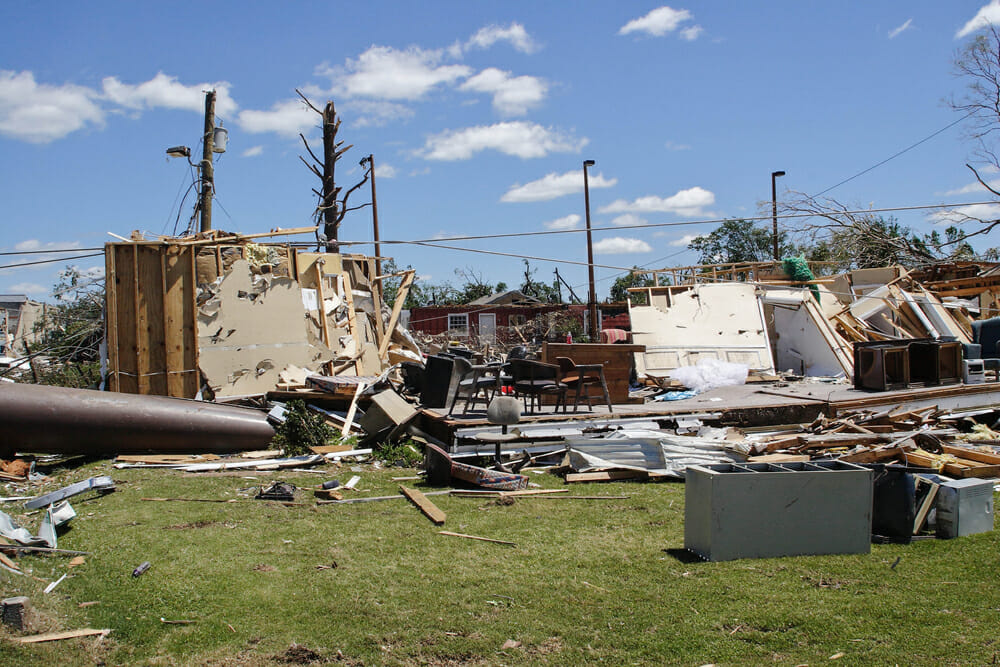
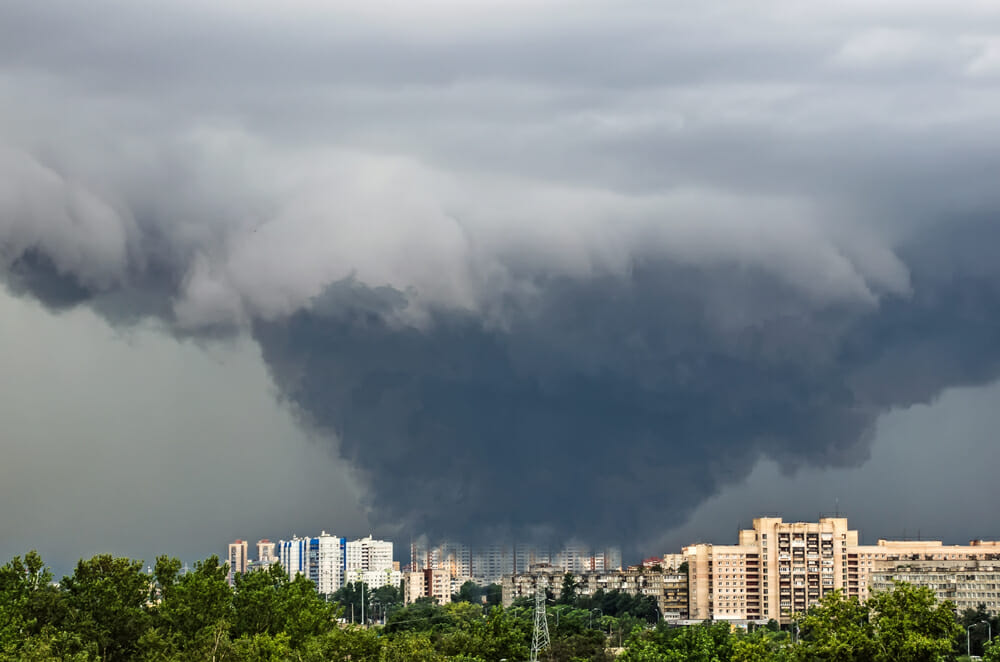

Years Experience
Claims Settled
Hours Worked
Average Claim Amount
Risk-Free Loss Recovery Offer
Get a complimentary consultation on your tornado damage insurance claim. We are tornado claim adjusters who work for policyholders, not the insurance company. If you choose to hire us, we work on contingency. No recovery, no fee. Our tornado insurance claim process is proven and streamlined. We also value your privacy. We do not sell, trade, or rent your personal information to others.
Need immediate tornado damage insurance claim help?
TESTIMONIALS
What Client Says About ICRS
It pays to know ICRS – “747% Higher Payments with a Public Adjuster for Claims related to a 2005 Hurricane”
Frequently Asked Questions
What is a public adjuster and what do they do?
When should I hire a public adjuster?
How are public adjusters compensated?
How do public adjusters differ from insurance company adjusters?
Do I need a public adjuster if I already have an insurance agent or broker?




